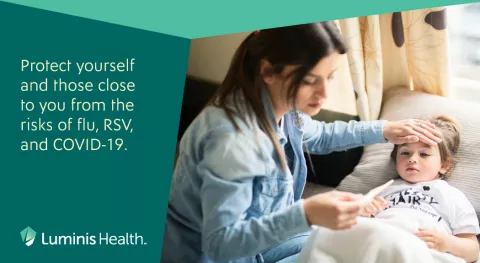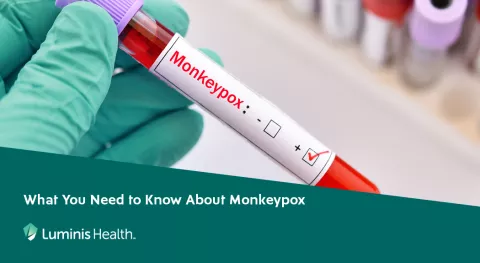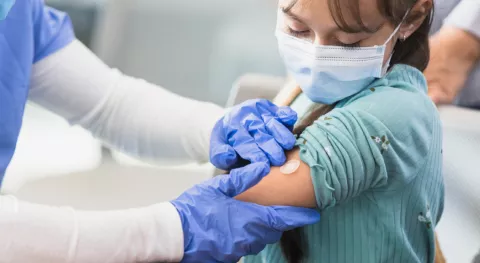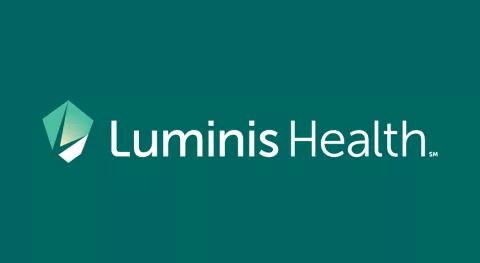by Luminis Health
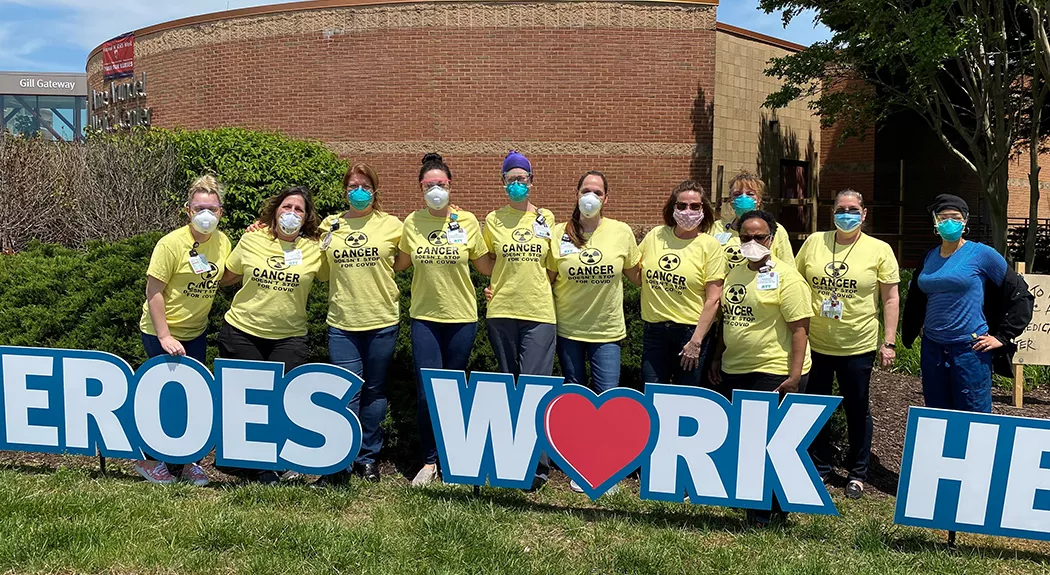
When Marvin Page reached to ring the bell after eight weeks of radiation treatment, it was more than a casual gesture. It was a milestone along his 12-month journey as a cancer patient. While the emotion of that delicate moment was partially hidden behind the mask he wore, Page decided to pen a letter to his three radiation therapists about the quality of his care.
In his letter, he called them brave. He called them soldiers.
“I never saw you waver one time,” Page wrote. “You never spoke fear, doubt or uncertainty and for that I am forever grateful. You are a soldier on the front lines helping people in spite of this pandemic. Thank you for taking care of me.”
Between February and April, Page received treatment for prostate cancer at Anne Arundel Medical Center’s DeCesaris Cancer Institute. Weekly he traveled from his Odenton, Maryland, home in the midst of climbing coronavirus (COVID-19) cases across the country, armed with a facemask he stored in a brown paper bag. Page said his treatment team – Angel “Ted” Torano, MD, a radiation oncologist at AAMC, and radiation therapists Lydia Capel, Kayla Welsh and Laura Zywicki-Payne – was consistent in its care for him.
“They never gave me the appearance that something would be missed or that my treatment would be interrupted,” Page said. “I compared them to soldiers on the front lines because that’s what they were. When you are a soldier on the front line, you have a task to do and you do it – you execute it. That’s what they did.”
Safe Care
Dr. Torano said Page’s letter describing his experience is a validation of the effort, dedication and care that AAMC strives to deliver on a daily basis to all patients.
“Receiving radiation treatment can be a uniquely new and stressful experience,” Dr. Torano said. “Our mission is to deliver high-quality care in a personalized manner. Accomplishing this can be especially challenging during the COVID-19 health care crisis. Despite the strict protocols put in place to minimize the risk of exposure to our staff and patients, such as social distancing and PPE, it is most gratifying to hear we are able to achieve our goal of delivering care in such a supportive manner.”
Page, who works as a network printer technician, said he was initially nervous because he didn’t know what safety precautions the hospital planned to take to protect him and other patients during the pandemic. With each visit, he said the medical staff assured him that they were ready to care for him safely.
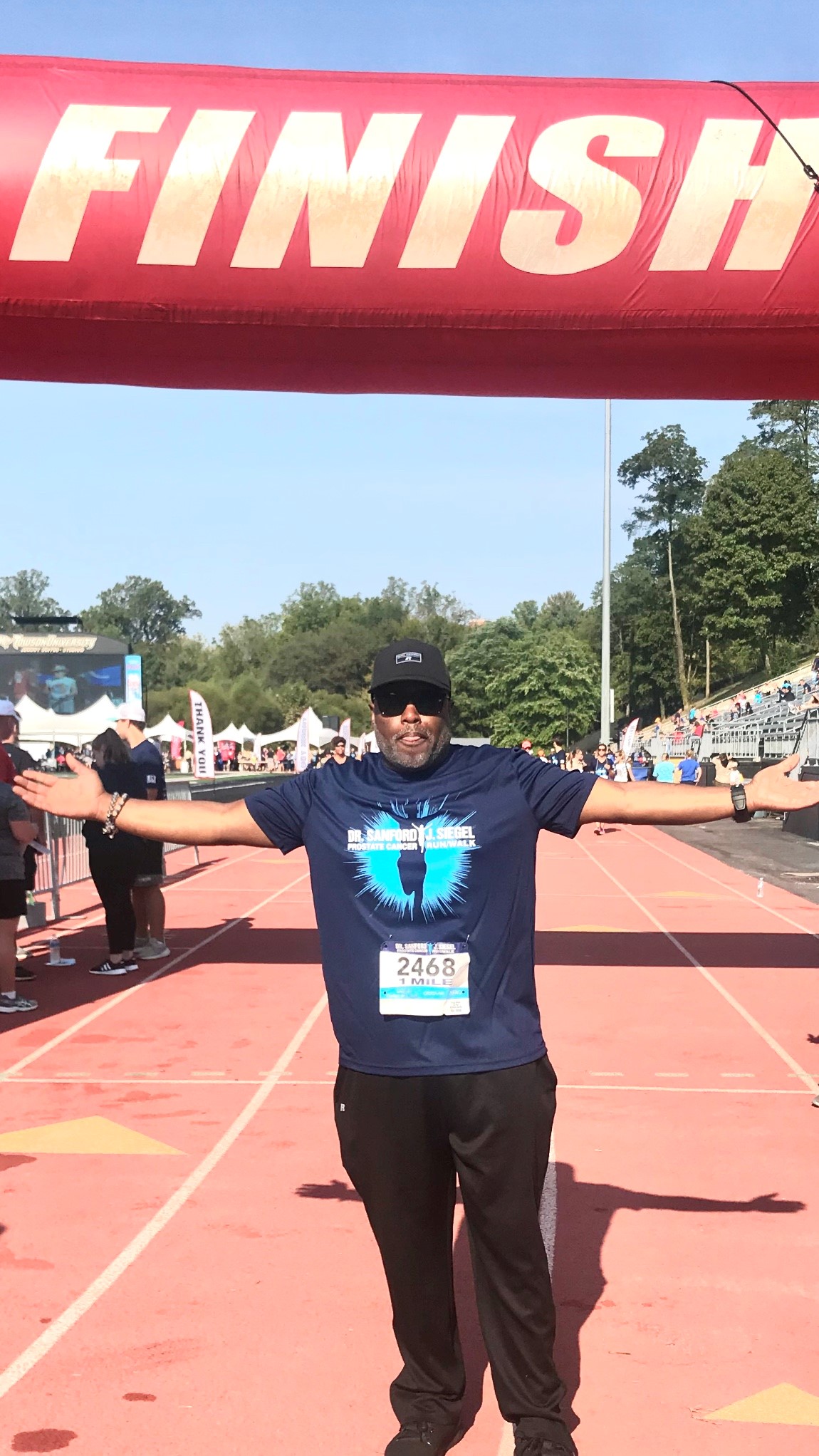
AAMC patient Marvin Page
“They were proactive in how they waited on the patients,” Page said. “We all had to wait in our cars before coming in to prevent the spread of COVID-19. The waiting in the car measure helped to ease my anxiety.”
Page said he and other patients were asked to wait in their cars briefly as a way to stagger the flow of patients, and as an extra precaution in addition to other safety measures.
“We try to make our patients feel safe in these uncertain times,” Zywicki-Payne said. “Our entire department works together to make sure that the patients come first, that there are always smiles and plenty of laughter. We take care of each other so that we can take care of the patients.”
The “A Team”
Page referred to Dr. Torano and the three radiation therapists as the “A Team,” in reference to Mr. T’s 1980s TV series. As he was writing the letter, Page said he noticed that each of the therapists’ first names ended in an “A” and Dr. Torano’s name starts with a “T.” He said they served as his “A Team” during his radiation journey.
“During his treatment we got to know Mr. Page very well,” said Capel, who became a radiation therapist after witnessing her father’s radiation treatment care nearly 10 years ago at AAMC. “We are lucky that we get to see our patients every day, and that we get to build a relationship with them. We get to see him from a hesitant day one where treatment is scary and unknown, to his last day laughing and ringing the bell at the end of his treatment.”
Welsh said her time with Page was very memorable.
“I like to develop strong bonds with my patients,” Welsh said. “I believe it is very important so that my patients feel a form of trust. I want to be their security blanket during this life-changing time.”
As Page’s recent bell ringing represents a milestone in his cancer journey, he wants others to know that they can depend on the team at AAMC to provide quality care during the COVID-19 pandemic and beyond.
“No one wants to have cancer, but trust the people who are a part of the process and a part of your care,” Page said. “Trust that they are doing everything possible to help you get better.”
